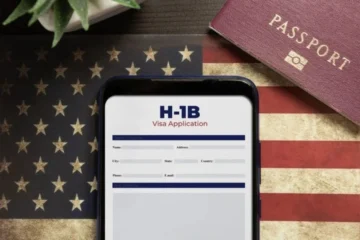Ireland is quietly stepping up its game in global talent attraction, and 2026 could be the year it becomes one of the most family-friendly destinations in Europe for skilled migrants. With rising demand across sectors like healthcare, logistics, and skilled trades, the Irish government has decided it’s time to modernise the entire system, making it easier not only to bring in key workers but also to welcome their spouses, partners, and children with far fewer bureaucratic headaches.
This article walks you through the big-ticket immigration reforms coming to Ireland in 2026—and how they’re making life easier for families planning to build their future on the Emerald Isle.
Key Takeaways
What Are the Key Immigration Changes Coming to Ireland in 2026?
Ireland’s immigration overhaul is rooted in one big goal: simplification. With the Employment Permits Act 2024 setting the stage, the reforms being implemented in 2026 are aimed at removing roadblocks for foreign professionals while creating a smoother, faster path for their families to join them.
The changes include a digitised one-stop-shop application platform for both employment permits and visas, expanded eligibility for family reunification, and updates to the Critical Skills Employment Permit (CSEP) list. Ireland is also addressing the long-standing issue of spouses not being able to work automatically and is introducing improved job mobility for existing workers.
If you’re someone planning to move to Ireland—or you’ve already got an offer in hand—these reforms could mean fewer delays, less paperwork, and a much warmer welcome for your entire household.
How Will the New One-Stop Application System Work?
One of the most frustrating parts of moving to Ireland used to be the two-track application system: first, secure an employment permit, and only then could you start the visa process. Each step had separate timelines, documents, and approvals. That’s now being overhauled.
From 2026, Ireland will roll out a new integrated online portal that combines the visa and work permit processes into a single application. Applicants will no longer have to jump between two systems or wait for one approval before starting the next. Everything—from initial submission to final decision—will be managed in one place, reducing duplication and helping cut down on processing times.
It’s part of Ireland’s broader push toward digital public services and will likely prove especially useful for families applying together.
Which Jobs Qualify Under the Updated Critical Skills Employment Permit?
Ireland’s Critical Skills list is getting a timely refresh in 2026 to better reflect the country’s real labour needs. While traditional roles in IT, engineering, and healthcare remain high on the list, new additions are opening the doors to workers in sectors that had previously been underrepresented.
Some of the notable new entries include:
- Social care workers, especially in long-term care and mental health
- Electricians, reflecting urgent infrastructure needs
- HGV mechanics and drivers, essential to Ireland’s growing logistics sector
These jobs are now considered critical to Ireland’s economy, meaning eligible applicants can access faster processing, higher approval chances, and—best of all—immediate work rights for their spouses and partners.
Also Read: How Easy Will It Be to Bring Your Family to Ireland in 2026?
Can Spouses and Partners Work Without Extra Paperwork Now?
Yes—and this is arguably the most family-friendly reform of them all. Starting in 2026, the spouses and partners of Critical Skills Employment Permit holders no longer need to apply for separate work permits.
Instead, they’ll be granted permission that allows full and unrestricted access to the Irish labour market. That means they can take up employment with any employer, in any role, without needing a sponsor or navigating another round of paperwork.
This change not only reduces costs for families but also empowers more dual-income households to settle and thrive in Ireland—something that benefits the local economy as much as the migrants themselves.
What About Salary Thresholds and Employer Requirements?
Ireland has also made important adjustments to its salary benchmarks. The salary threshold for a Critical Skills Employment Permit will rise to €44,000 by the end of 2025, while the General Employment Permit minimum will climb to €39,000. These increases are designed to align foreign worker salaries more closely with local wage standards.
On the employer side, there’s good news too. The traditional requirement to advertise job roles on Irish and EU job boards for weeks before hiring a foreign worker is being relaxed, especially for roles listed under the Critical Skills category. This should significantly cut down the lead time for companies trying to fill urgent vacancies.
For employers, this means more flexibility. For applicants, it means your offer letter could turn into a visa more quickly than before.
Is It Now Easier to Change Employers or Job Roles in Ireland?
Yes. Previously, many work permit holders were tied to a single employer for at least 12 months before they could switch jobs or change sectors. Under the Employment Permits Act 2024, the waiting period has been reduced to just 9 months.
This gives workers more control over their careers and reduces their dependence on a single employer—a move that labour rights advocates have long pushed for. It also improves job mobility in a market where talent gaps exist across multiple sectors.
So if you find a better role or your circumstances change within your first year in Ireland, you’ll now have a bit more freedom to respond to those opportunities.
How Has the Family Reunification Process Improved?
The family reunification process has historically been a sticking point in Ireland’s immigration system, with complicated eligibility rules and long wait times. In 2026, that’s finally changing.
Now, family applications submitted alongside the principal worker’s application will be processed in parallel, making it possible for families to arrive together. Financial eligibility criteria are also more clearly defined, so applicants know upfront what income and housing standards they need to meet to bring dependents.
The definition of “family” is also broader, now more consistently including:
- Spouses or partners
- Children under 18
- Dependent parents in certain cases
With fewer delays, better transparency, and support from the integrated application system, more families will find it possible to make a fresh start in Ireland without prolonged separation.
Final Thoughts: Is 2026 the Best Time to Relocate to Ireland?
If you’ve been considering a move to Ireland but were previously put off by complicated processes or family visa barriers, 2026 might be your best chance. The government has recognised that attracting global talent means welcoming the whole household, not just the skilled worker.
By digitising the process, expanding job eligibility, and allowing family members to live and work more freely, Ireland is sending a strong message: it wants not just your skills, but your future.
Whether you’re a healthcare worker, tradesperson, IT professional, or someone with a job offer in hand, Ireland in 2026 may just offer the right balance of opportunity, simplicity, and support for your family’s next chapter.





